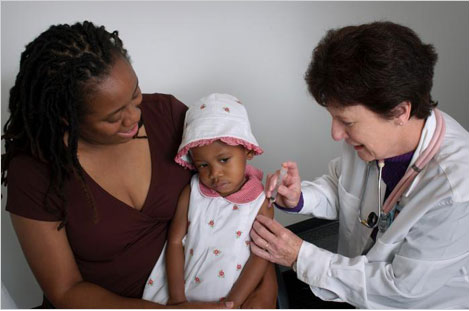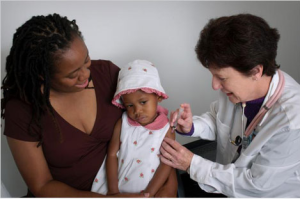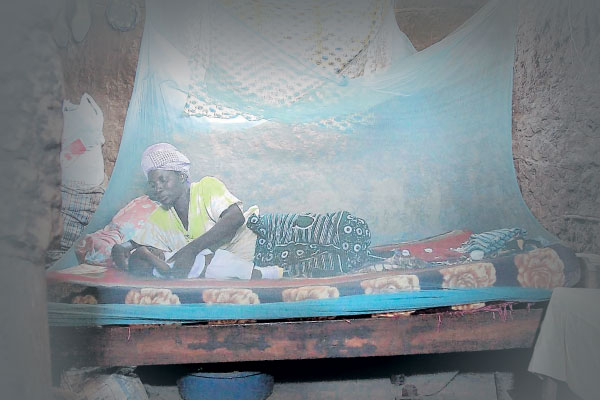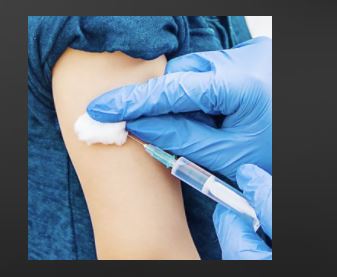
Malaria vaccine implementation starts next year
Yesterday (24th April), The World Health Organization Regional Office for Africa (WHO/AFRO) announced that Ghana, Kenya, and Malawi will take part in a WHO-coordinated pilot implementation programme that will make the world’s first malaria vaccine available in selected areas, beginning in 2018.
Ghana, Kenya and Malawi to take part in WHO malaria vaccine pilot
Ghana, Kenya and Malawi will select the areas with highest malaria burden to be involved in a large RTT,S rollout. It is estimated that over 750,000 children aged 5- 17 months will be vaccinated starting next year (2018).
I was confused when I heard in the news that children 5-17 months will be vaccinated – and I thought I had heard it wrong — after all if you want to give 4 doses of a vaccine, you would want to do this through the usual routine vaccinations.
I contacted experts in the field and was assured that this is the case. The implementation of the malaria vaccine, RTS,S is aimed at children 5 – 17 months.
The reasoning behind giving the vaccinations in the 5-17 month period is that during the clinical trials, using the routine schedule at 6,10, 14 weeks, the protective effect of the vaccine was low and also that protection did not last long.
The vaccines that most people are used to: polio, measles, tetanus – prevent over 90% of the disease they protect against – this protection lasts a lifetime. The malaria vaccine RTS,S in trial conditions has been shown to have an efficacy of 26-36% and this efficacy declined very quickly….
Decline in protection using malaria vaccine
Children who were vaccinated with RTS,S malaria vaccine actually had more episodes of malaria when they got older because they had not acquired natural immunity compared to their unvaccinated agemates. It appeared that vaccinating early may not have the desired effect. It therefore makes more sense to vaccinate older children.
Because of the waning of the protection, the children would also receive booster vaccination.
This means that next year, in areas where malaria levels are high in Kenya, Ghana and Malawi, children will be having the usual routine vaccinations at 6,10,14 weeks of age for pentavalent, pneumococcal vaccine, polio vaccine and then start another whole lot of vaccinations for malaria at month 5, they will receive 3 vaccines a month apart and then get a booster dose after a year or so of these initial vaccinations. Remember they still have their measles vaccination at 9 months.
This is really not going to be easy.
I would have expected that a malaria vaccine would only be rolled out if it fitted into the routine vaccination programs and was at least protective throughout childhood. Researchers have shown that in areas with the very highest malaria transmission, the peak of severe malaria episodes was 3-5months from data collected from the Lake Victoria region of Kenya in the 1990’s – an area where the implementation study will most certainly be conducted..
Malaria peaks before 5th month in high transmission areas
Vaccinating older infants in this region will therefore have missed out on a period of greatest risk – malaria episodes will be prevented – yes – but not when it was most needed.
I am surprised at the decision by the World Health Organization (WHO) to implement a whole new system of vaccinations on top of a system that is just about trying to do its job right. However, it would be foolish to say that it should not be done – everything needs to be thrown at malaria – to see the end of it. But the people on the ground really need to understand the issues involved.
More tomorrow….
**************************************************************
If you have enjoyed this read, please vote
as Best public health blog in category 16 and Best Kenya blog in category 23 by going to Vote at
16. Best Public Health Blog
a. http:healthkenya.co.ke
23. Kenyan Blog of the Year
a. http:healthkenya.co.ke
Anyone from anywhere in the world can vote – you will be asked for phone number and email to avoid repeat voting…
Thank you
Comment
Comments are closed.





Moses
I agree with you, diagnosis of malaria by laboratory technologist in most countries is a challenge due to poor training capacities